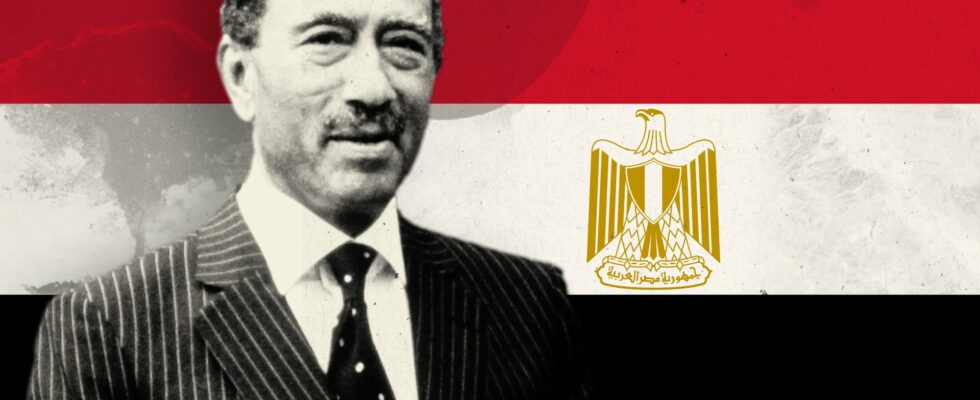Since the middle of the 20th century, important figures have changed the Israeli-Palestinian conflict. This week, La Loupe draws their portrait with Frédéric Encel, geopolitician and columnist at L’Express, and Corentin Pennarguear, journalist at the World service. For this second episode, we head to Anwar el-Sadat’s Egypt.
FIND ALL THE EPISODES OF LA LOUPE
Listen to this episode and subscribe to La Loupe on Apple Podcasts, Spotify, Deezer, Google Podcasts, Podcast Addict And Amazon Music.
The team: Charlotte Baris (presentation and writing) and Jules Krot (editing and production).
Credits: INA, TV5 World
Music and design: Emmanuel Herschon/Studio Torrent
Image credits: CONSOLIDATED NEWS/AFP
Logo: Jeremy Cambour
How to listen to a podcast? follow the leader.
Charlotte Baris: It’s a hug that features in many history books. On September 17, 1978, Anwar Sadat, the Egyptian president, and Menachem Begin, the Israeli prime minister, hugged to loud applause. In a lavish room at the White House, next to US President Jimmy Carter, they had just signed the Camp David Accords.
With the two countries waging a war for nearly 30 years, Sadat is the first Arab head of state to sign a peace agreement with Israel after days of negotiations in the president’s holiday resort. Aside from Egyptian-Israeli relations, the text is expected to address the fate of the West Bank and Gaza Strip.
A historic agreement that led, a month later, to Sadat and Begin receiving the Nobel Peace Prize. But many provisions of the text were not actually applied, notably those concerning the Palestinians, and their consequences still remain today.
To go further
Why Israel Took Control of the Strategic “Philadelphia Corridor”
War between Israel and Hamas: Rafah, the horror of too much
The front with Hezbollah, Israel’s new war objective
